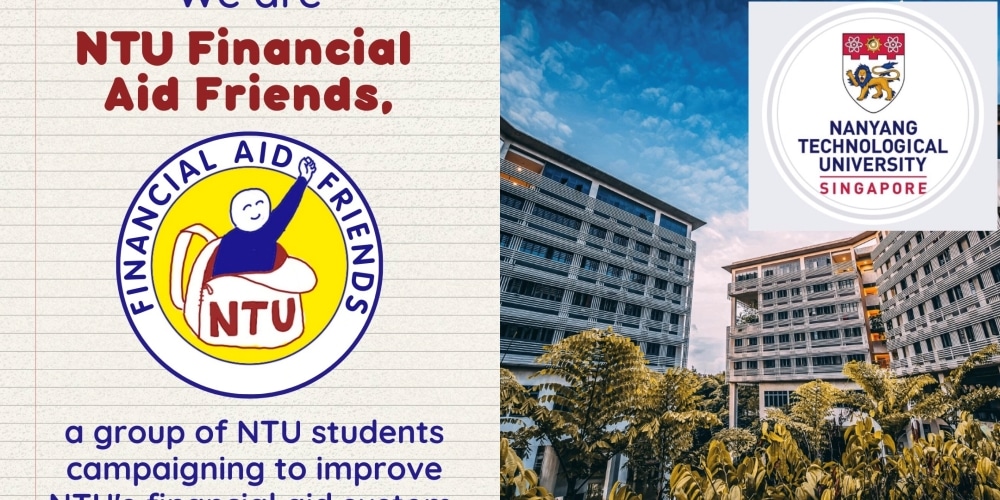A group of students and supporters on Tuesday evening (26 January) assembled outside the Singapore Ministry of Education (MOE) building to protest discrimination against LGBT students, particularly in light of the case of an 18-year-old junior college student who claimed that the Ministry had interfered with her hormone replacement therapy (HRT).
Student activist Lune Loh, who goes by she/they pronouns, said that she has “seen and heard of far too many generations of transgender students who have been subjected to the disciplinary violence of MOE-run schools”, herself included.
Such “disciplinary violence” against transgender students in MOE-run schools, said Ms Loh, range from “the regulating of hairstyles, wearing of gendered uniforms, the lack of access to medical treatment, and the prevention of trans alumni returning, among other forms of discrimination”.
She hoped for LGBT students, particularly transgender students, to be able to have a seat “at the table” with the Ministry and for the Ministry to able to attend to the needs of such students.
Non-governmental organisation My Queer Story SG founder Elijah Tay, who goes by they/them pronouns, said that they participated in the assembly today “in solidarity with fellow students who have faced transphobia by systems that are meant to protect them”.
They added that “national leaders who should be at the forefront of upholding this national promise are severely lacking in doing so”.
“I would love to say “we deserve better”, but the fact is that we are fighting for the bare minimum,” said Mx Tay.
The students and supporters who assembled outside MOE today said in a statement today that discrimination and harassment against LGBT students “is a long-standing issue in our schools which damages their wellbeing and denies access to safe and supportive education”.
“Students themselves, human rights and civil society groups, as well as educators, counsellors and other professionals working with young people, have raised concerns about discriminatory and intrusive practices by schools, which hurt both LGBTQ+ students, as well as heterosexual and cisgender students, by undermining privacy, bodily autonomy and well-being,” they said.
Such practices, they said, include, but are not limited to:
- Checking and controlling whether students’ clothes, hair and bodies match gender norms imposed by schools, including through intrusive clothing checks (e.g. examining underclothes);
- Prohibiting and policing students’ dating and intimate relationships, including punishing or shaming students for relationships;
- School counselling which treats LGBT identities as problems to be done away with (e.g. conversion therapy) rather than affirming students’ autonomy and identities;
- Disrespecting students’ confidentiality and outing them as LGBT to family members or other persons without their consent;
- Physically excluding students from school based on whether they look like a gender the school imposes upon them. Home-Based Learning (HBL) could be offered, but not imposed, for all students whose circumstances might make HBL a preferred option for a period;
- Refusing to use gender pronouns requested by students;
- Censoring mention and open discussion of LGBT experiences and identities, including by disciplining or policing educators; and
- Continuing to discuss LGBT identities mainly in the context of informing students during sex-ed that Section 377A deems homosexual conduct illegal and opposed to societal norms, and failing to provide LGBT-inclusive information on sexual and reproductive health and well-being.
The group also criticised MOE for its recent statements on the matter, which it said “have not acknowledged the harm your schools have done to trans students, nor committed to concrete actions to alleviate this harm”.
The Ministry, they said, merely claimed that its “current practices are good enough when it is abundantly clear from the testimonies of trans students that they are not”.
“MOE seems more invested in defending itself than in caring for the well-being of trans students,” they added.
Touching on the role of schools, the group stressed that civic lessons in school instruct students “to respect and be kind to others”.
“Do the institutions practise these same values, in their treatment of students?” they questioned.
“Young people learn much more from what they see others do, rather than what they are told. Schools that practice transphobia reinforce a transphobic society. It is urgent that we put an end to discrimination in schools’ policies and practices,” the group stressed.
The students and supporters also urged MOE to acknowledge and apologise for the harm done by schools to LGBT students through their schools’ discriminatory practices, and to clearly and explicitly commit to end such discrimination in the education environment.
“This must include working closely with students themselves and LGBTQ+ groups to understand their concerns, and to draw on and implement their existing concrete ideas and expertise,” they said.
Edit: The previous version of this article attributed the statements to rights group Community Action Network (CAN). The statements were made by the students and supporters who assembled out of MOE and were conveyed through CAN. We apologise for the error.






